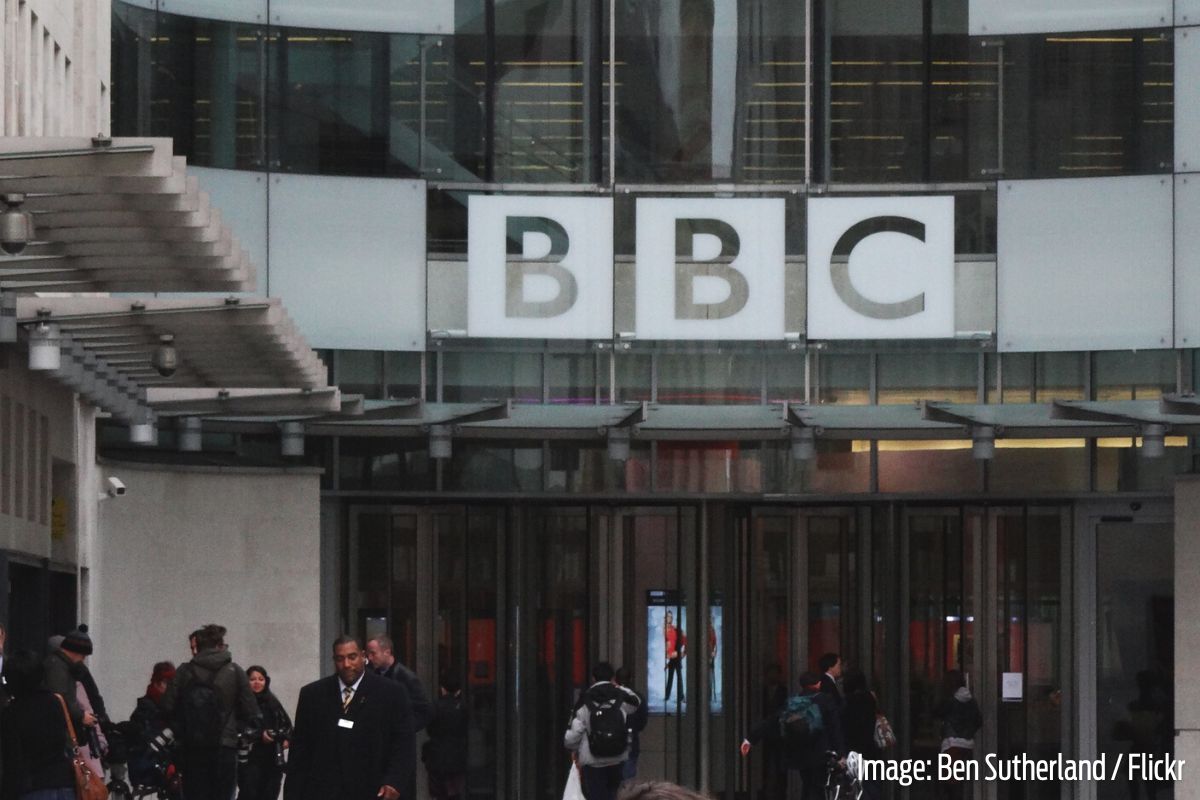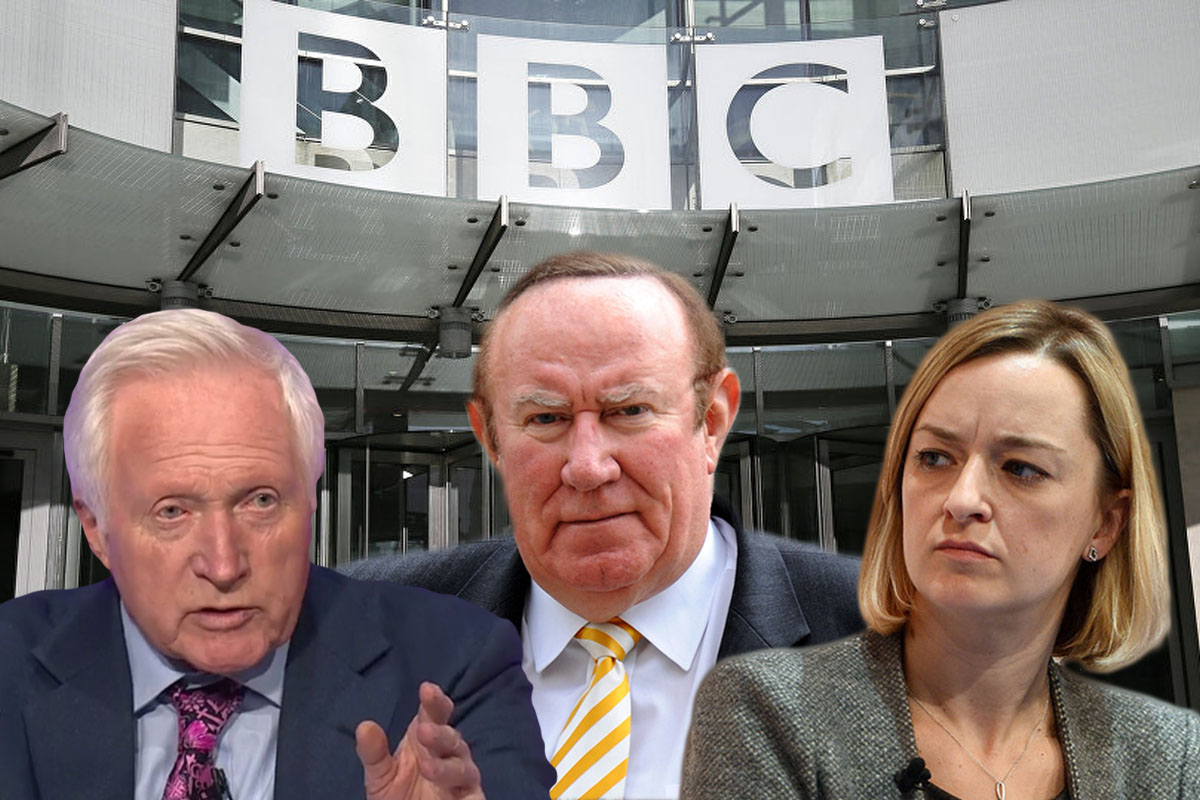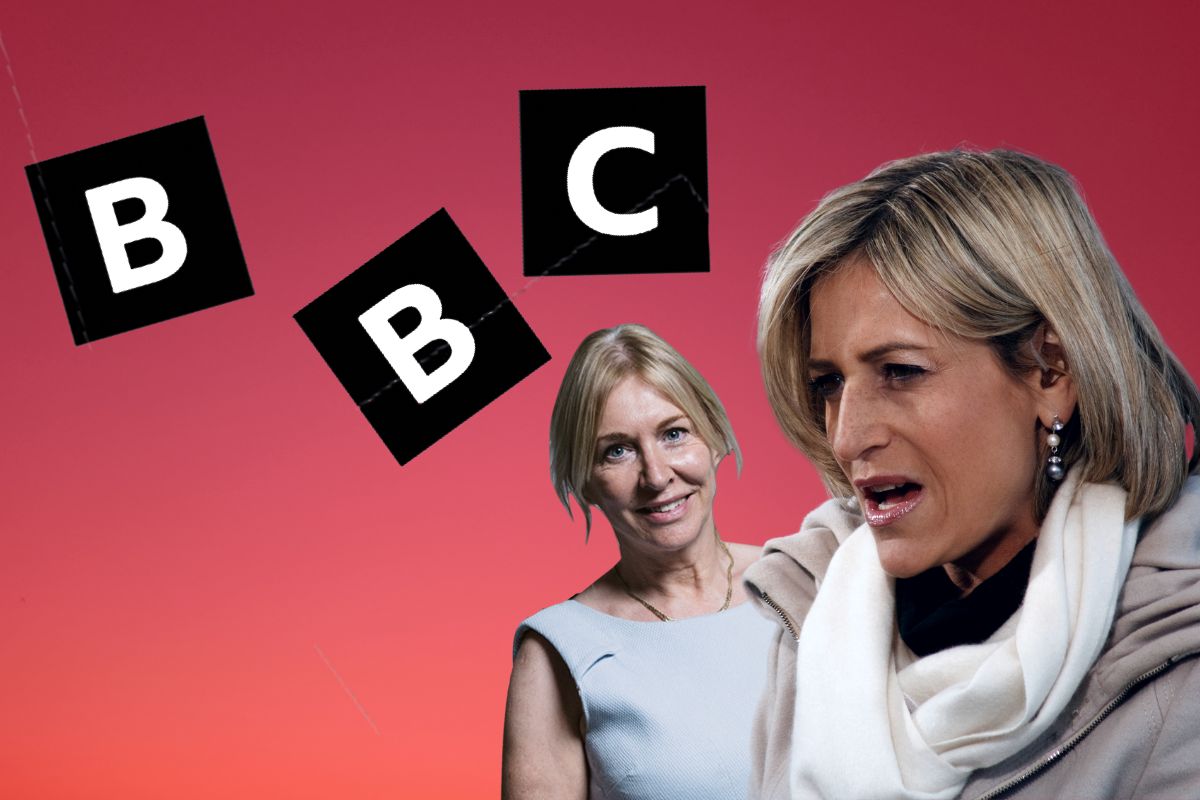Emily Maitlis, the former lead anchor of BBC’s Newsnight, has caused a stir by revealing how the Tory government censors and pressures the state broadcaster, in order to portray the former in a positive light.
In her recent 45-minute James MacTaggart Lecture at the Edinburgh TV Festival, Maitlis railed against populism, including Boris, Trump, and (apparently) Corbyn; claimed that the Beeb has succumbed to government diktats; and outed an “active agent of the Conservative party…[who] now sits, acting as the arbiter of BBC impartiality”.
As evidence for her assertion of political censorship, Maitlis gave the example of how she was reprimanded for her monologue condemning Dominic Cummings over his breaking of lockdown rules during the pandemic.
Everything was fine, it seemed, until Downing Street called to complain. This led to a public apology, with the Newsnight episode in question being taken off BBC iPlayer. Furthermore, Maitlis was replaced as the show’s anchor the following night.
In her Edinburgh lecture, Maitlis also discussed the problem of ‘both-sideism’. To demonstrate her point, she gave the example of economists during the Brexit debate. It would take a few minutes to find 60 economists who warned of the negative effects of Britain leaving the EU, Maitlis stated, while it would take five hours to find one economic ‘expert’ who espoused this. When it came to the programme airing, however, both would be given equal airtime, for the sake of providing a facade of ‘balance’.
Most damningly of all, Maitlis revealed that the aforementioned “active agent of the Conservative Party” is Robbie Gibb, who sits on the BBC board, which governs and runs the institution.
Robbie Gibb was the head of live political programming at the BBC from 2008 until the summer of 2017. Previously he was Theresa May’s spin doctor; deputy chair of the Federation of Conservative Students; a former adviser to Michael Portillo; and is brother to Conservative MP Nick Gibb. He is clearly a dyed-in-the-wool Tory, through and through.
More recently, Robbie Gibb has openly taken aim at the supposedly ‘woke’ culture and “left-leaning attitude” that has taken ‘Auntie’ hostage.
In proof of Gibb’s role as an “active agent of the Conservative Party”, Maitlis gave the example of how he tried to block the appointment of former Huffington Post journalist Jess Brammers to a senior editorial job at the BBC, because she was seen as being not loyal enough to the Tories.
Real role

What Maitlis has highlighted in her recent lecture provides interesting revelations straight from the horse’s mouth. But none of this news. For most people, her insights merely confirm what we already suspect and know to be true: the BBC has always been an establishment mouthpiece, ever since its inception.
In reality, there isn’t just one “active agent of the Conservative Party” at the BBC. Britain’s primary public broadcaster is packed with Tories – and they occupy the most senior editorial and managerial roles.
As we have previously shown – from Andrew Neil and David Dimbleby, to Nick Robinson and James Lansdale: many of the BBC’s most influential names and figures have personal links to the Tories.
In addition, Richard Sharp, the current chairman of the BBC, is a Tory Party donor. And there are countless others who have come and gone through this establishment institution – from Allegra Stratton and Jeremy Paxman, to Rona Fairhead and Evan Davis.
Furthermore, the BBC themselves have openly admitted that, at least until the 1990s, they vetted thousands of candidates who applied to work at the Beeb, with the help of MI5, for fear of ‘communist subversion’. This is not a conspiracy, it is openly admitted on the BBC’s own news website.
More recently, the real nature and role of the BBC was starkly revealed by Boris Johnson’s former political advisor, Dominic Cummings, when he stated at a parliamentary select committee:
“The main person…I spoke to in the whole of 2020 was Laura Kuenssberg [chief political correspondent] at the BBC…because the BBC has a special position in the country…I was in the room for certain crucial things; I could give guidance to her for certain big stories.” (Our emphasis)
Liberal hypocrisy

Emily Maitlis is correct to highlight the BBC’s role as yet another propaganda tool for the Tories. Ultimately, however, her criticisms represent those of the liberal wing of the establishment, which has been increasingly sidelined in recent years.
This is the real reason for her own alienation from the BBC, as it currently stands.
Maitlis gives the example of Brexit in reference to the BBC’s ‘both-sideism’, complaining that Tory pressure has given an undue platform to Leave supporters.
But what she fails to mention is the complete silencing of workers’ voices – at the BBC and across the entire mainstream media – when it comes to class issues.
From the monarchy, to the war in Ukraine, to the detention of Julian Assange, to the strikes and struggles breaking out across Britain: not only the BBC, but the whole of the capitalist press, provide a deafening chorus of imperialist jingoism and anti-union bashing on behalf of the bosses and the ruling class.
So when Maitlis paints a picture of the BBC losing its impartiality and censorship, as a consequence of so-called ‘populism’, this is itself a lie; a product of her own liberal bias.
The BBC has always represented the interests of British capitalism and imperialism, against those of the working class. It is not simply a propaganda machine for this Tory government, but for the British ruling class, in its war on workers.
BBC vs Corbyn

Ironically enough, Maitlis brought up Jeremy Corbyn in her lecture, admitting that most papers were viciously hostile towards him.
However, she also accused Corbyn and the Corbyn movement of representing an equally pernicious strand ‘populism’, and of showing their own hostility towards the BBC – most especially in relation to political correspondent Laura Kuenssberg, who was frequently booed whilst asking Corbyn questions.
But why was Laura Kuenssberg booed, if she and the BBC were just reporting on Jeremy Corbyn with ‘fairness’ and ‘impartiality’?
Indeed, as everyone knows, the BBC was far from ‘impartial’ when it came to coverage of the Labour Party under Corbyn’s leadership. As a leaked document from the BBC Trust admitted, for example, discussing Kuenssberg’s reporting of the former Labour leader:
“There was a significant difference between what Mr Corbyn said and what the report inferred. This led to a failure of due accuracy.”
Maitlis also recalled the infamous photoshop of Jeremy Corbyn in front of a red Soviet-esque Kremlin at the time of the Sailsbury poisonings, which was clearly intended to paint the left-wing MP as a nefarious ‘Moscow stooge’.
The former Newsnight host made various mealy-mouthed excuses for this. But then why did the programme also digitally alter Corbyn’s face in order to make him appear as Lord Voldemort? And why did the BBC commission a scandalous documentary by John Ware, a former Sun journalist, in order to slander and smear Corbyn and his supporters as antisemites?
The list of similar such examples is endless – examples that Maitlis seemingly does not have an issue with.
For a workers’ media!
More recently, the class role of the BBC – and the mainstream media in general – has been seen with their attacks on left-wing trade union leaders such as Mick Lynch.
On BBC’s Question Time, for example, Lynch was constantly interrupted by host Fiona Bruce. Notably, he was also the sole left-wing voice out of a panel of five people. But even this was generous: normally the left and the labour movement is lucky to be represented on the show at all!
This is not by chance. From its inception, the BBC was designed to be a mouthpiece for the ruling class. It will never reflect and represent the interests of the vast majority – the working class.
Institutionally, structurally and culturally: the Beeb is beyond reform. The fact that someone like Emily Maitlis is now openly saying as much is a symptom of the deep splits within the ruling class – itself a product of the deep crisis of British capitalism.
For a real transformation of the BBC, free from censorship and corporate interests, only clear socialist measures will suffice.
At a minimum, this must include a reversal of all privatisation and outsourcing; full funding, paid for by the super-rich, not through regressive taxes; the abolition of the BBC Board, and the election of all managerial and editorial roles, under the democratic control of the working class, including unionised BBC staff; and use of the broadcaster’s resources – including studios, editorial suites, offices, and more – allocated on the basis of the support for their views within society, not the amount in their bank balance.
The problem runs far deeper than this, however. It is not simply that the Tories exert a political influence over Auntie’s output, but that the capitalist class own and influence all the major news channels and outlets.
Above all, therefore, we need a revolution across the whole media industry. This means expropriating the billionaire owners of the press and private TV monopolies, and running these under public ownership and democratic workers’ control.
Under capitalism, the working class has no voice in the mainstream media, whether this be on the BBC, or in any of the right-wing rags and gutter press. Instead, we must fight for a media of our own – one run by workers, for workers – as part of the fight for revolution.






